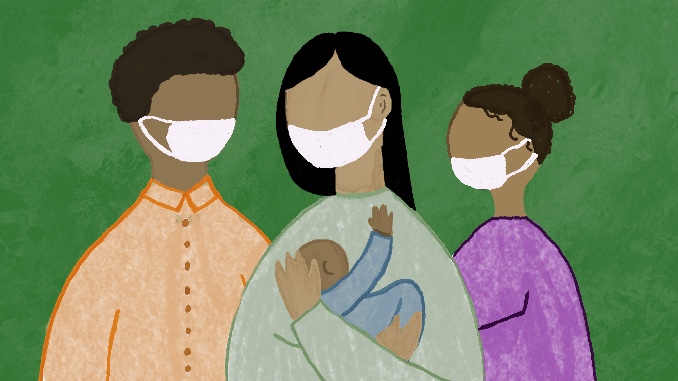
Nearly a year into the coronavirus pandemic, it’s no secret that parents are struggling — but startling new data reveals that many who turn to government programs for help in the nation’s most populous state can’t access essential resources like health care and fresh food.
An early February survey of 600 families with kids 5 and younger released Thursday found that between the financial instability caused by the pandemic and barriers to public benefits, California children — especially children of color — are skipping meals and missing doctor’s visits that are key to tracking healthy development in early childhood.
“If we are not doing what we need to do as a state to take care of our youngest Californians, we have some deep issues to reconcile,” said Christopher Nellum, deputy director of the research group Education Trust-West, which partnered with the racial justice advocacy group Advancement Project California and other education and child-focused researchers and advocates to develop and administer the survey.
The poll found that nearly a third of parents surveyed had applied for Medi-Cal, many after losing their jobs to the pandemic. But half were never able to enroll. The most common complaint among respondents was too much burdensome follow-up: a barrage of letters requesting additional information, such as documents to prove identity or income.
“It was not an easy process,” said Mayra Alveraz, president of The Children’s Partnership, a nonprofit advocacy group also involved in the survey, during a news briefing to announce the results.
When people need to apply for multiple benefits, like unemployment, food stamps and public health insurance, rigorous verification must be completed for each program, even though they’re all administered by the county.
One Los Angeles dad who lost his job early in the pandemic had been receiving unemployment benefits for 10 months before being denied Medi-Cal. The county was unable to verify his income even though he was being paid through another public program.
Access problems were found across safety net programs. More than one-third of respondents said either they or their children had recently skipped a meal. A different survey released in January by the California Policy Institute found that paperwork problems commonly keep low-income Californians from accessing CalFresh benefits that could provide fresh produce, dairy and protein for their families.
“Why do we need to subject families to these challenges?” Alvarez said. Streamlining the application process for various public benefits is a key starting point to easing access, she added.
This lack of access has contributed to startling survey responses around pediatric care for the youngest Californians. According to the California Parent Poll, a third of children up to age 5 have missed essential well-child visits during the pandemic, visits where pediatricians track growth and developmental milestones and provide immunizations that require booster shots on strict timelines.
The poll conducted in the first two weeks of February found the missed visits have meant fewer referrals to mental health services during a time when many children are being exposed to higher-than-usual levels of toxic stress. While 87% of parents think their kids could be helped by such referrals, only 13% had received them.
The survey findings identified another damaging barrier to children’s health: the inability to utilize tele-health services. Less than half of parents with young children have been able to access their child’s doctor virtually, despite nearly all indicating that doing so would help them keep up with their family’s health needs.
While the poll results released Thursday highlighted numerous areas of concern for families with young children — including a dire shortage of affordable and safe child care — some bright points emerged. Most preschool students are back to in-person learning, at least part time. And almost all the parents who had their children in child care and preschool said they were satisfied with the quality of the program.
EdTrust-West’s executive director, Elisha Smith Arrillaga, said recovery policymaking provides an opportunity to address some of the glaring issues the pandemic has exposed.
“We really are at a crossroads right now,” she said: Lawmakers can take the opportunity to invest in supports for the state’s youngest kids, “or we can continue doing what we’ve been doing, which is underinvesting in a system that needs these supports more than ever.”





